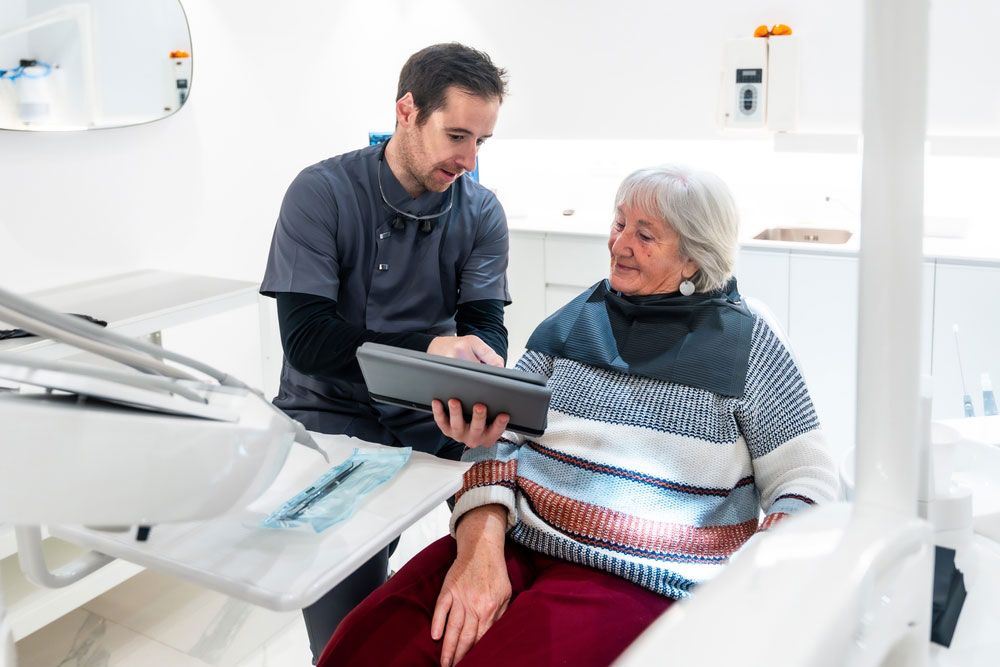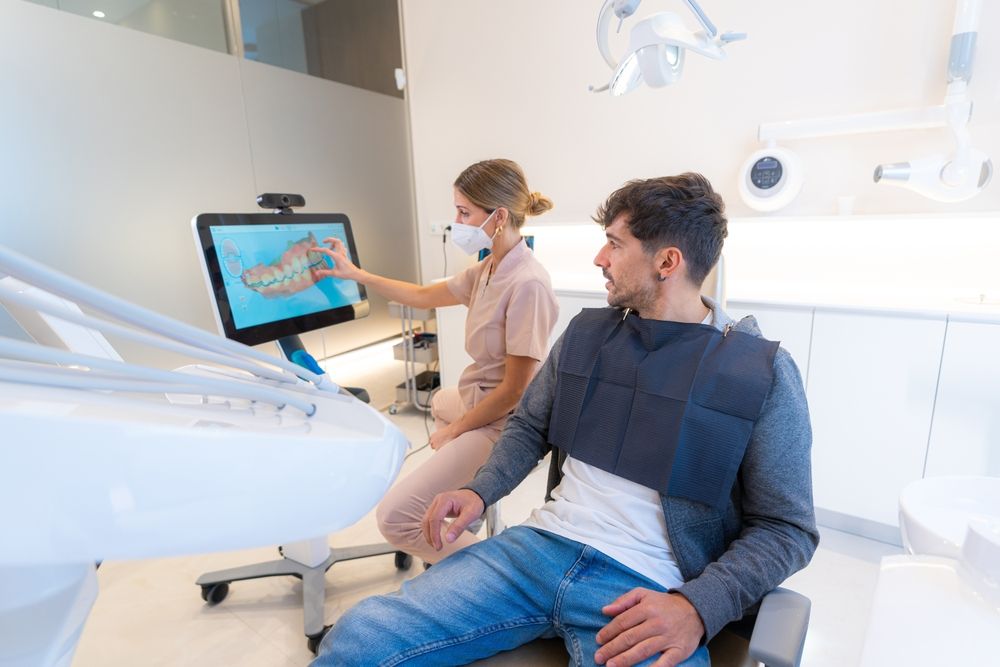When it comes to endodontic treatment, preparation plays a critical role in ensuring a smooth and successful procedure. Endodontic treatments, often referred to as root canals, involve the removal of infected or damaged tissue from inside the tooth. At Raleigh Endodontics in Raleigh, NC, Dr. Luke Dalzell specializes in providing expert care that can save your natural teeth and alleviate discomfort. To help you feel confident and ready for your upcoming procedure, here is a comprehensive guide to preparing for endodontic treatment.
Understanding Endodontic Treatment
Before diving into preparation tips, it’s important to understand what endodontic treatment entails. When the soft tissue inside your tooth, known as the pulp, becomes infected or damaged due to decay, trauma, or deep cavities, a root canal may be necessary. The procedure involves removing the infected pulp, cleaning and disinfecting the tooth’s interior, and sealing it to prevent further infection.
Endodontic treatment is designed to relieve pain, save your tooth, and restore its function. While the thought of undergoing a root canal may cause anxiety for some patients, modern techniques and anesthesia options make the procedure relatively painless and straightforward.
Pre-Treatment Preparations for a Smooth Procedure
Preparing for your endodontic treatment will not only help you feel more comfortable, but it will also increase the likelihood of a positive outcome. Below are several steps you can take to prepare for your visit to Raleigh Endodontics.
1. Understand Your Procedure
Before your appointment, Dr. Dalzell and his team will explain the details of your endodontic treatment, including what to expect before, during, and after the procedure. Take this opportunity to ask any questions you may have, as understanding the process can help alleviate any concerns. Knowing the steps involved can also help reduce anxiety, as you’ll have a clearer picture of how the treatment will progress.
It’s essential to discuss any medical conditions or medications you’re taking, as these may impact your treatment. Certain health issues, such as heart conditions or a weakened immune system, might require antibiotics before the procedure to prevent infection.
2. Get a Good Night’s Sleep
A well-rested body is better equipped to handle medical procedures, and endodontic treatment is no exception. Prioritize getting a full night’s sleep before your appointment to ensure your body is in the best condition possible. Resting well will also help reduce any anxiety you might feel about the procedure.
3. Eat a Balanced Meal Before Your Appointment
Unless otherwise instructed by Dr. Dalzell, it’s generally a good idea to eat a balanced meal before your endodontic treatment. Because the procedure may involve local anesthesia, your mouth may feel numb for a few hours afterward, making it difficult to eat immediately post-treatment.
Opt for a healthy meal that includes lean protein, fruits, and vegetables, as this will provide you with the necessary nutrients to support your body during the procedure. Avoid overly sugary or acidic foods, as they can irritate your teeth and gums.
4. Avoid Smoking or Drinking Alcohol
In the days leading up to your endodontic treatment, it’s important to avoid smoking and drinking alcohol. Both habits can have negative effects on your oral health and slow down the healing process after your procedure.
Smoking, in particular, reduces blood flow to the gums and teeth, making it more difficult for your mouth to recover from dental treatments. If possible, try to refrain from smoking for at least 24 hours before and after your procedure to promote optimal healing.
5. Plan for Transportation if Sedation is Used
If your endodontic treatment involves sedation—whether it’s oral sedation, nitrous oxide (laughing gas), or IV sedation—you’ll need to arrange transportation to and from your appointment. Sedation can impair your ability to drive or perform everyday tasks, so it’s essential to have a trusted friend or family member available to drive you home safely.
Raleigh Endodontics offers a range of sedation options to help patients feel more relaxed during their treatment, especially if dental anxiety is a concern. Discuss sedation options with Dr. Dalzell beforehand to determine the best choice for you.
6. Wear Comfortable Clothing
On the day of your procedure, wear comfortable, loose-fitting clothing to your appointment. Since the treatment may take some time, being comfortable during the procedure will help you relax. Additionally, consider bringing a sweater or jacket in case the dental office feels cool to you.
7. Follow Pre-Appointment Instructions
Dr. Dalzell and his team will provide specific instructions for your endodontic treatment. Be sure to follow these instructions carefully to ensure a smooth experience. This may include adjusting certain medications, avoiding specific foods or drinks, or taking antibiotics as prescribed.
What to Expect During Your Endodontic Treatment
Understanding what will happen during the procedure can ease any apprehension. Here’s a brief overview of what to expect during your root canal treatment:
- Numbing the Area: Dr. Dalzell will administer a local anesthetic to numb the tooth and surrounding area, ensuring you remain comfortable throughout the procedure.
- Accessing the Tooth: A small opening is made in the crown of the tooth to access the infected pulp.
- Cleaning and Shaping: The damaged pulp is removed, and the tooth’s interior is cleaned and disinfected to eliminate any bacteria or debris.
- Sealing the Tooth: Once the cleaning is complete, the tooth is sealed with a rubber-like material to prevent future infections. In some cases, a temporary filling may be placed until a permanent crown is applied at a follow-up appointment.
- Post-Procedure Care: After the procedure, you’ll receive instructions on how to care for the treated tooth. This may include avoiding hard foods, taking over-the-counter pain medication, and maintaining good oral hygiene.
Post-Treatment Recovery Tips
Your recovery after endodontic treatment is just as important as the preparation. Following these post-treatment tips will help ensure a smooth healing process:
- Rest: Take it easy for the rest of the day after your procedure to allow your body time to recover.
- Pain Management: Some discomfort is normal after the procedure. Over-the-counter pain relievers like ibuprofen can help manage any post-treatment soreness.
- Oral Hygiene: Continue brushing and flossing your teeth gently to keep your mouth clean. Avoid the treated tooth if it feels sensitive.
- Follow-Up Appointments: If a follow-up visit is required for a permanent crown or additional treatment, be sure to attend all scheduled appointments to complete the process and protect your tooth.
Long-Term Care for Your Treated Tooth
The success of endodontic treatment doesn’t stop when the procedure ends. It’s important to take care of your teeth and gums moving forward. Continue practicing good oral hygiene habits, such as brushing twice a day and flossing daily, and schedule regular dental check-ups to monitor your oral health.
By following Dr. Dalzell’s aftercare instructions and maintaining a consistent oral health routine, your treated tooth can last a lifetime.
Sources:
- Ng, Y. L., Mann, V., & Gulabivala, K. (2011). Outcome of primary root canal treatment: systematic review of the literature – part 2. Influence of clinical factors. International Endodontic Journal.
- Siqueira, J. F., & Rôças, I. N. (2014). Microbiology and treatment of endodontic infections. Dental Clinics of North America.
- Dummer, P. M. H. (1991). Root canal anatomy, management of endodontic emergencies, and preparation for endodontic treatment. British Dental Journal.







